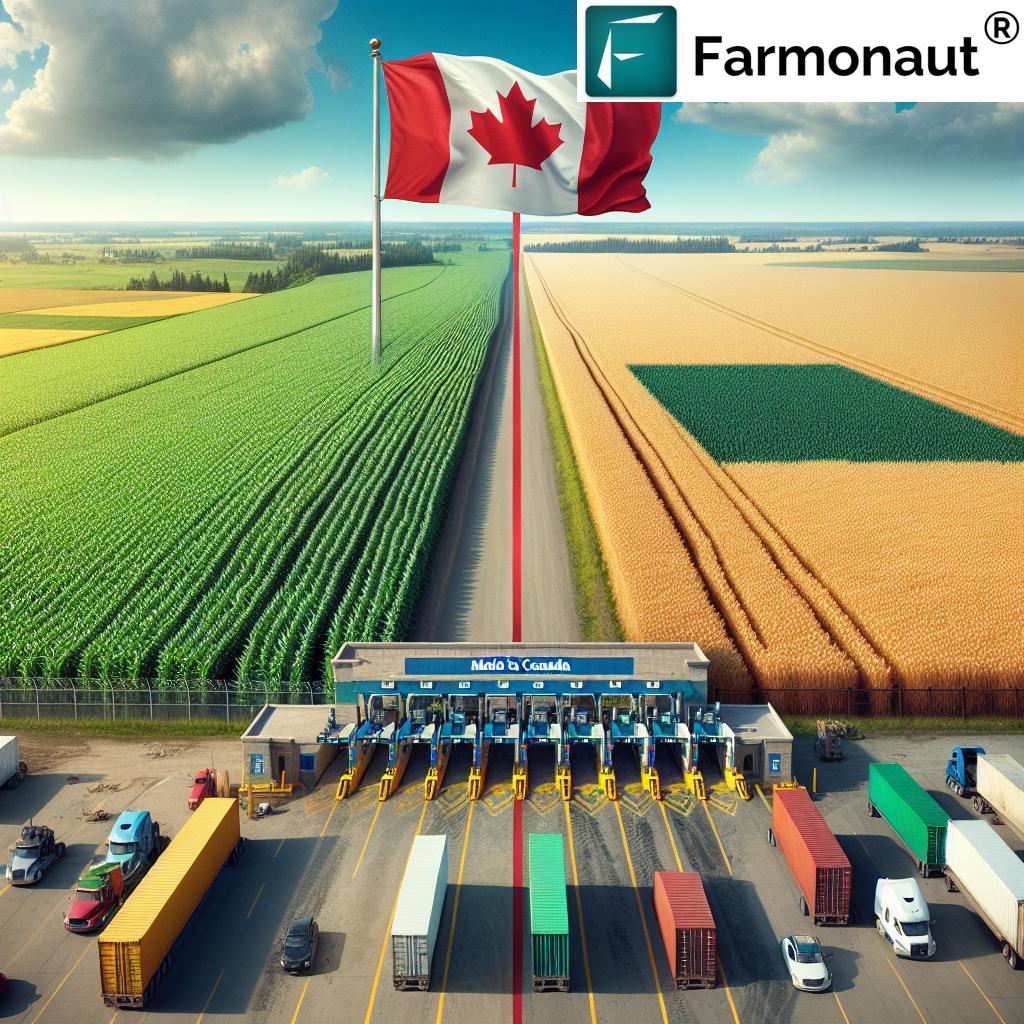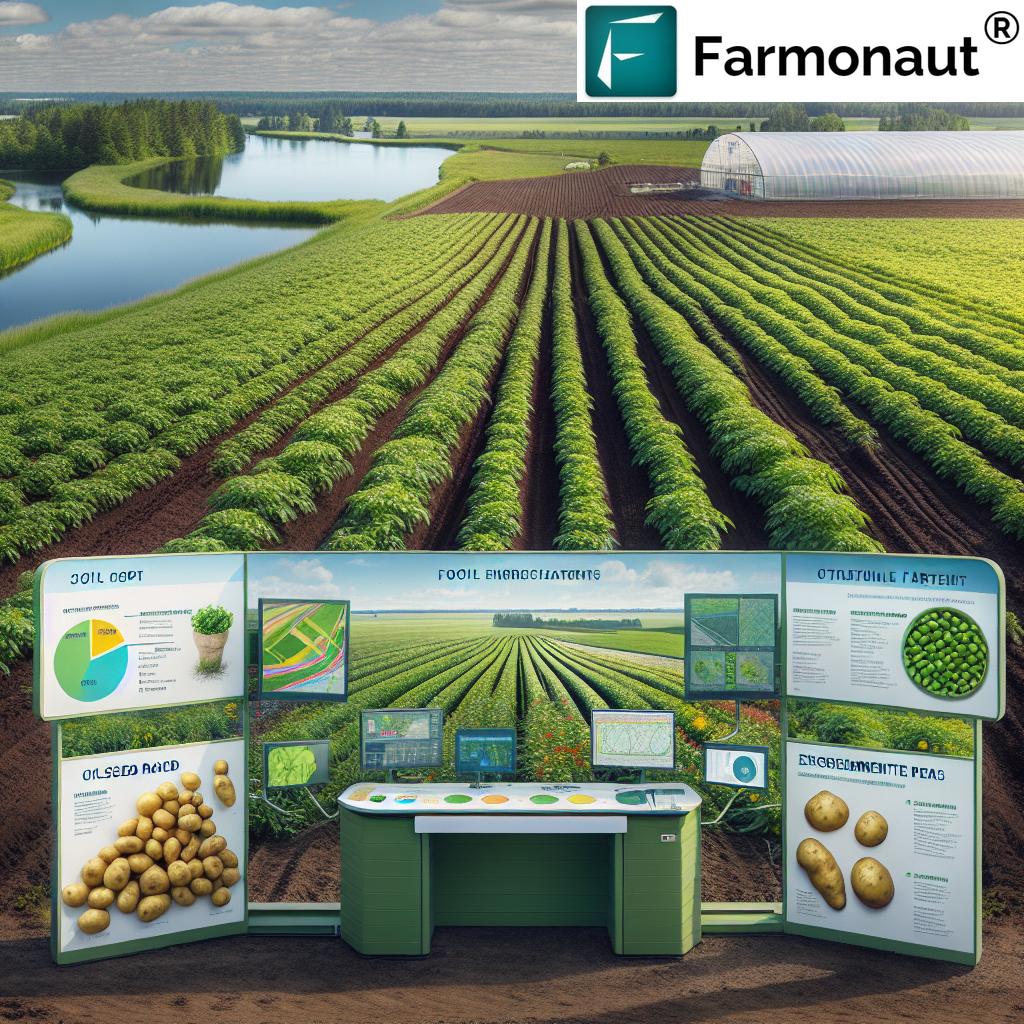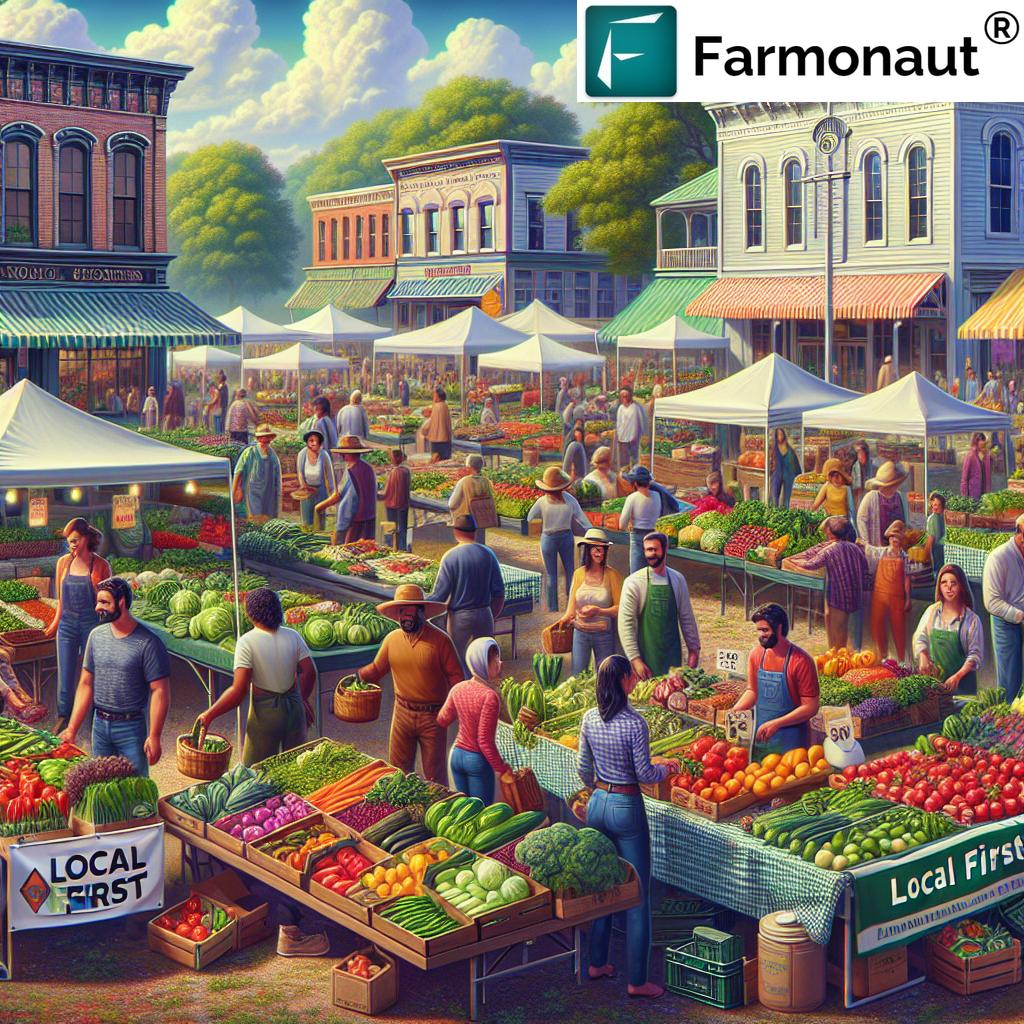Canadian Senate Strengthens Agricultural Representation: Saskatchewan Farmer Appointed as Independent Senator
“The Canadian Senate appointed 3 new independent senators, including a Saskatchewan farmer with agricultural expertise.”
In a significant move that strengthens agricultural representation in the Canadian Senate, Prime Minister Justin Trudeau has announced the appointment of three new independent senators, including a Saskatchewan farmer with extensive experience in agricultural associations. This development marks a crucial step in enhancing the diversity and expertise within Canada’s upper chamber, particularly in areas vital to the nation’s agricultural sector and rural communities.
As we delve into the details of these appointments and their potential impact on Canadian agricultural policy, it’s essential to understand the broader context of Senate diversity initiatives and the ongoing transition in Canadian government structures. Let’s explore how these new voices in the Senate promise to shape policies that will influence producers, logistics, and rural development across the country.
The New Appointments: Bringing Fresh Perspectives to the Senate
On February 7, 2025, Prime Minister Trudeau announced the appointment of three new independent senators to the Senate of Canada:
- Todd Lewis – Representing Saskatchewan
- Martine Hébert – Representing Quebec
- Baltej Dhillon – Representing British Columbia
These appointments are part of a broader initiative to fill remaining vacancies in the Senate, which has been transitioning towards a more independent, merit-based appointment process since 2015. With these new additions, the Trudeau government has now appointed a total of 93 independent senators, leaving seven vacancies to be filled.
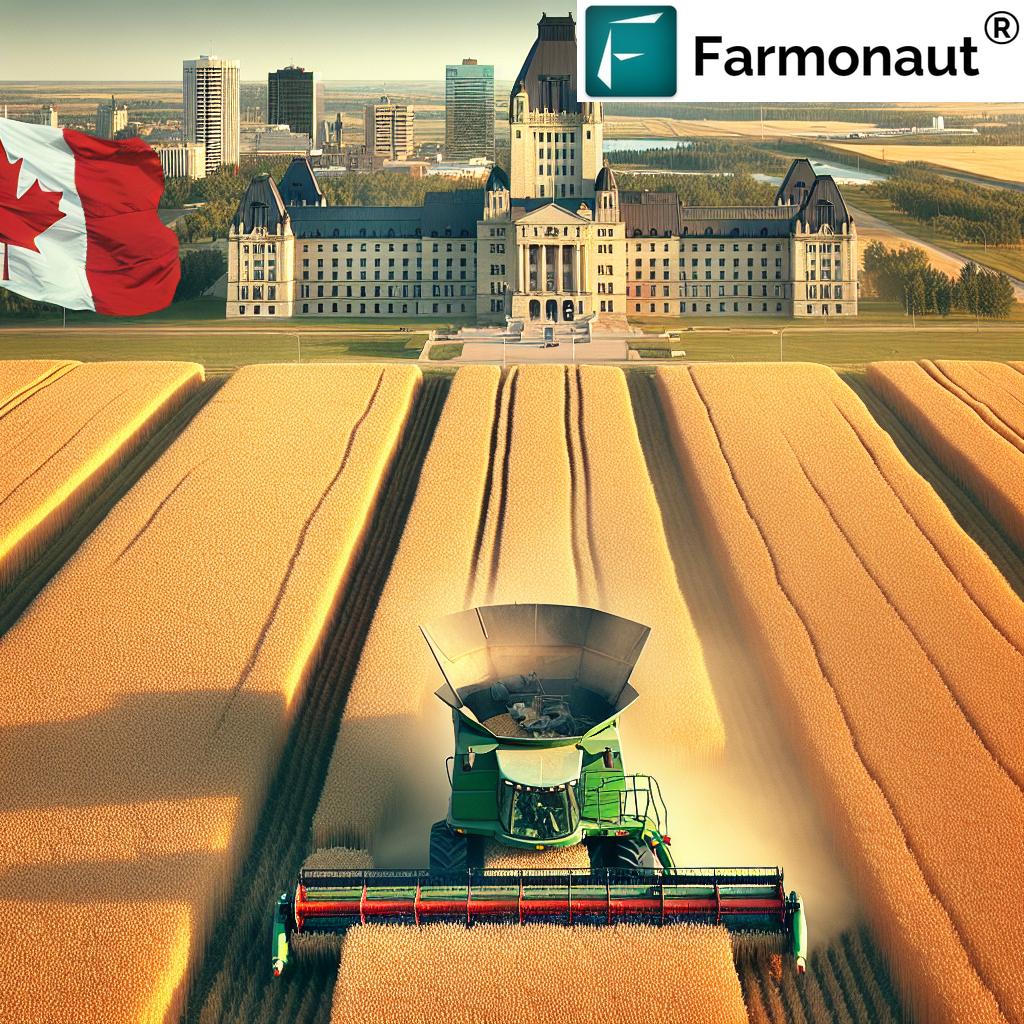
Todd Lewis: A Voice for Saskatchewan Agriculture
Of particular interest to the agricultural community is the appointment of Todd Lewis, a fourth-generation farmer from Gray, Saskatchewan. Lewis brings a wealth of experience and a deep understanding of the challenges and opportunities facing Canadian farmers. His background includes:
- Five years as President of the Agricultural Producers Association of Saskatchewan
- Active membership on the Saskatchewan Chamber of Commerce Environment Committee
- Participation in Agriculture and Agri-Food Canada’s Crop Logistics Working Group
- Current position as first vice-president at the Canadian Federation of Agriculture
- Member of the Canadian National Railway Agricultural Advisory Council
Lewis’s appointment is a significant step towards ensuring that the voices of Canadian agricultural producers are heard at the highest levels of government. His extensive experience in various agricultural associations and committees positions him as a valuable asset in shaping policies that will impact the future of farming in Canada.
Martine Hébert: Economic Expertise from Quebec
Representing Quebec, Martine Hébert brings a distinguished career as an economist and former diplomat to the Senate. Her expertise is expected to provide valuable insights into economic and trade matters, enhancing discussions on key issues affecting both Quebec and Canada as a whole. Hébert’s appointment strengthens the Senate’s capacity to address complex financial and trade-related challenges that impact the agricultural sector and rural economies.
Baltej Dhillon: Public Safety Contributor from British Columbia
Baltej Dhillon, representing British Columbia, comes with an impressive background in law enforcement. Since 2019, he has been involved with the province’s anti-gang agency and is recognized as the first Royal Canadian Mounted Police (RCMP) officer to wear a turban, a milestone he achieved in 1991. Dhillon’s unique profile and experience contribute to his capability for addressing issues related to public safety and community well-being in the Senate, which can have significant implications for rural and agricultural communities.
“Quebec’s economic expert and British Columbia’s public safety contributor were among the new Senate appointees, enhancing regional representation.”
The Impact on Canadian Agricultural Policy
The appointment of Todd Lewis, in particular, is poised to have a substantial impact on Canadian agricultural policy. His extensive experience in the farming sector and leadership roles in various agricultural organizations provide him with a unique perspective on the challenges and opportunities facing Canadian farmers. We can expect Lewis to bring attention to several key areas:
- Crop Logistics and Transportation: Given his involvement with the Crop Logistics Working Group and the Canadian National Railway Agricultural Advisory Council, Lewis is well-positioned to address issues related to grain transportation and supply chain efficiency.
- Environmental Sustainability: His experience with the Saskatchewan Chamber of Commerce Environment Committee suggests a focus on balancing agricultural productivity with environmental stewardship.
- Farm Support Programs: Lewis’s leadership in producer associations indicates he may play a crucial role in shaping and refining farm support programs at the national level.
- Trade Policy: As the agricultural sector is heavily influenced by international trade, Lewis’s insights could be valuable in discussions on trade agreements and their impact on Canadian farmers.
To better understand the potential impact of these new appointments on Canadian agriculture, let’s examine a detailed breakdown:
| Senator | Province | Background/Expertise | Potential Agricultural Impact |
|---|---|---|---|
| Todd Lewis | Saskatchewan | Fourth-generation farmer, extensive experience in agricultural associations | – Advocate for improved farm support programs – Push for enhanced grain transportation policies – Focus on sustainable farming practices – Champion rural development initiatives |
| Martine Hébert | Quebec | Economist and former diplomat | – Provide insights on agricultural trade policies – Analyze economic impacts of farm policies – Contribute to discussions on rural economic development |
| Baltej Dhillon | British Columbia | Law enforcement background, anti-gang agency experience | – Address rural crime and safety concerns – Contribute to discussions on farm labor and immigration policies – Potential focus on food security issues |
Enhancing Rural Policy Representation
The appointment of these new senators, particularly Todd Lewis, signifies a strengthening of rural policy representation in the Canadian Senate. This is crucial for several reasons:
- Addressing Rural Challenges: Rural areas often face unique challenges that may be overlooked in urban-centric policy discussions. Having senators with firsthand experience of rural life ensures these issues are brought to the forefront.
- Bridging the Urban-Rural Divide: By bringing rural perspectives to the Senate, these appointments can help foster better understanding and cooperation between urban and rural interests in policymaking.
- Promoting Agricultural Innovation: Senators with agricultural backgrounds can advocate for policies that support innovation and technological advancement in the farming sector.
As we consider the potential impact of these appointments on rural and agricultural policies, it’s worth noting the role of technology in modern farming. Companies like Farmonaut are at the forefront of agricultural innovation, offering satellite-based farm management solutions that can significantly enhance productivity and sustainability in the agricultural sector.
While the Senate doesn’t directly engage in technological development, senators with agricultural expertise can play a crucial role in shaping policies that support the adoption of such technologies and promote innovation in the farming sector.
The Evolving Composition of the Canadian Senate
These new appointments reflect the ongoing evolution of the Canadian Senate and the government’s efforts to ensure diverse representation that incorporates valuable experiences and expertise from various sectors. The transition towards a more independent Senate began in 2015, with the goal of enhancing the upper chamber’s ability to provide sober second thought on legislation and represent regional interests effectively.
Key aspects of this evolution include:
- Merit-Based Selection: The current appointment process focuses on selecting individuals based on their qualifications and potential contributions, rather than political affiliations.
- Regional Representation: The appointments continue to ensure that all regions of Canada have a voice in the Senate.
- Diverse Expertise: By appointing senators with varied backgrounds, the Senate is better equipped to address complex national issues from multiple perspectives.
The inclusion of a Saskatchewan farmer in this round of appointments underscores the importance of agricultural representation in national policymaking. It also reflects a recognition of the vital role that agriculture plays in Canada’s economy and rural communities.
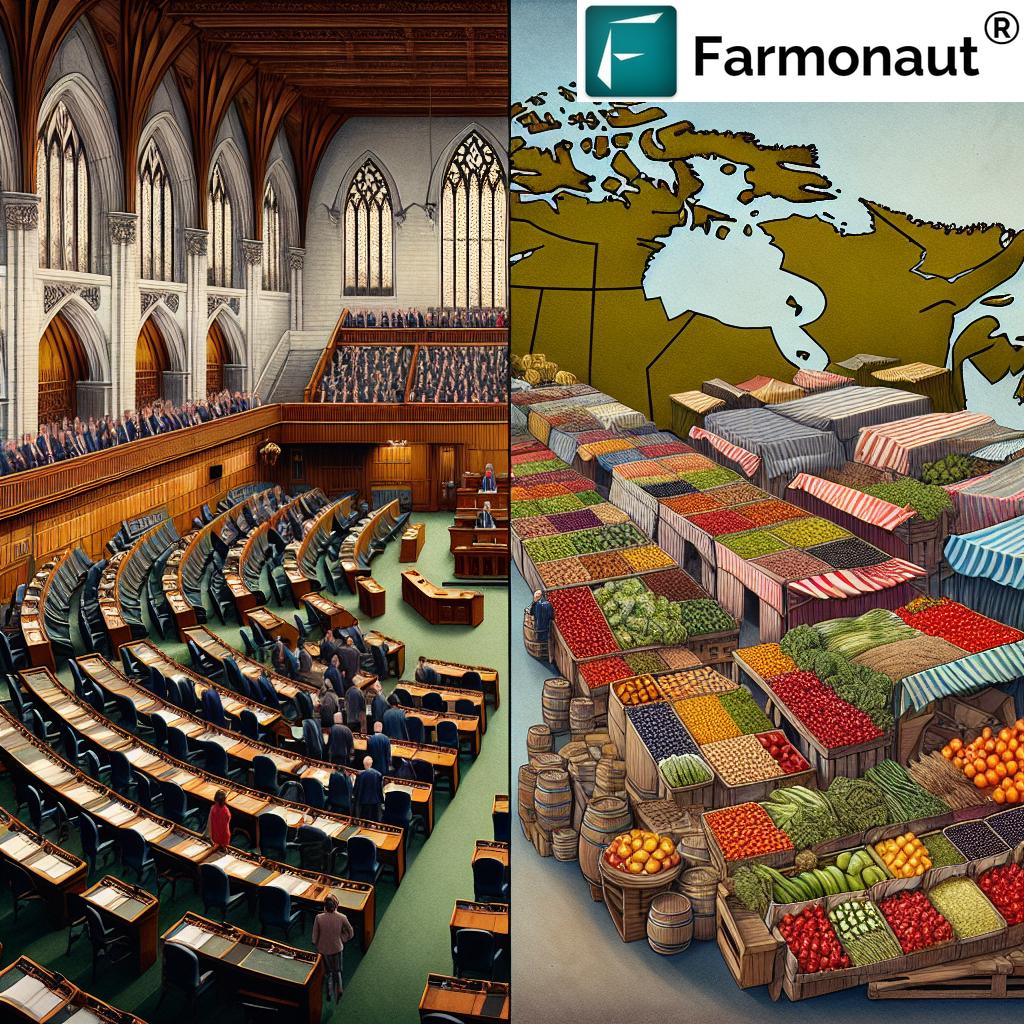
Implications for Canadian Agriculture and Rural Development
The appointment of Todd Lewis to the Senate has significant implications for Canadian agriculture and rural development. Here are some key areas where we might see an impact:
- Agricultural Policy Development: Lewis’s extensive experience in agricultural associations positions him to provide valuable input on policy development related to farming practices, crop management, and agricultural innovation.
- Rural Economic Development: His understanding of rural communities can help shape policies that support economic diversification and sustainability in rural areas.
- Environmental Stewardship: Given his background with environmental committees, Lewis may advocate for policies that balance agricultural productivity with environmental conservation.
- Transportation and Logistics: His involvement with crop logistics working groups suggests he may push for improvements in Canada’s agricultural transportation infrastructure.
- Farm Support Programs: Lewis’s experience with producer associations may lead to refinements in how farm support programs are structured and implemented.
These potential impacts highlight the importance of having diverse voices in the Senate, particularly those with direct experience in key sectors of the Canadian economy.
The Role of Technology in Modern Agriculture
As we consider the future of Canadian agriculture and the potential influence of new Senate appointments, it’s crucial to acknowledge the role of technology in shaping the sector. Advanced agricultural technologies are transforming farming practices, improving efficiency, and promoting sustainability.
For instance, platforms like Farmonaut offer innovative solutions for modern farmers:
- Satellite-Based Crop Monitoring: Providing real-time insights into crop health and soil conditions.
- AI-Driven Advisory Systems: Offering personalized recommendations for crop management.
- Precision Agriculture Tools: Enabling more efficient use of resources and improving yields.
While senators like Todd Lewis bring valuable on-the-ground experience to policy discussions, they can also play a role in promoting the adoption of such technologies and ensuring that policies support innovation in the agricultural sector.
Looking Ahead: The Future of Canadian Agricultural Policy
As we look to the future of Canadian agricultural policy, the new Senate appointments, particularly that of Todd Lewis, signal a potential shift towards more informed and nuanced discussions on agricultural issues. Here are some areas where we might see developments:
- Sustainable Farming Practices: Increased focus on policies that promote environmentally sustainable farming methods while maintaining productivity.
- Technology Adoption: Potential incentives or support for farmers adopting precision agriculture technologies to improve efficiency and sustainability.
- Rural Infrastructure: Greater attention to the development of rural infrastructure, including broadband internet access, to support modern farming practices.
- Climate Change Adaptation: Policies aimed at helping farmers adapt to changing climate conditions and mitigate their environmental impact.
- Trade Relations: Continued focus on international trade agreements that benefit Canadian farmers and agricultural exports.
The expertise brought by senators like Todd Lewis will be crucial in navigating these complex issues and ensuring that agricultural policies are both practical and forward-thinking.
Conclusion: A Stronger Voice for Canadian Agriculture
The appointment of Todd Lewis as an independent senator represents a significant step towards stronger agricultural representation in the Canadian Senate. Along with the other new appointees, this move enhances the diversity of perspectives and expertise in the upper chamber, potentially leading to more informed and effective policymaking for the agricultural sector and rural communities.
As Canada faces both challenges and opportunities in agriculture, from climate change adaptation to technological innovation, having knowledgeable voices in the Senate will be crucial. The inclusion of a Saskatchewan farmer with extensive experience in agricultural associations ensures that the concerns and insights of Canadian farmers will be heard at the highest levels of government.
While the impact of these appointments will unfold over time, they signal a commitment to ensuring that Canada’s agricultural sector has a strong voice in shaping the policies that will guide its future. As we move forward, it will be essential to monitor how these new senators influence discussions and decisions on agricultural policy, rural development, and the overall direction of Canada’s farming sector.
FAQ Section
Q1: How does the appointment of Todd Lewis benefit Canadian farmers?
A1: Todd Lewis brings extensive experience in agricultural associations and firsthand knowledge of farming challenges. His appointment ensures that farmers’ perspectives are represented in Senate discussions on agricultural policy, potentially leading to more informed and practical decisions that benefit the farming community.
Q2: What role do independent senators play in Canadian government?
A2: Independent senators are appointed based on merit rather than political affiliation. They provide non-partisan perspectives on legislation, offer regional representation, and contribute diverse expertise to Senate debates and committee work.
Q3: How might these appointments impact rural development in Canada?
A3: The inclusion of senators with rural backgrounds, like Todd Lewis, can lead to increased focus on rural issues in policy discussions. This could result in more targeted initiatives for rural economic development, infrastructure improvements, and support for rural communities.
Q4: What are some key agricultural issues that the new senators might address?
A4: Key issues may include sustainable farming practices, climate change adaptation, agricultural trade policies, farm support programs, and the adoption of new technologies in farming.
Q5: How does the Canadian Senate appointment process work?
A5: Since 2015, the appointment process has shifted towards a merit-based system. Candidates are reviewed by an independent advisory board, which provides recommendations to the Prime Minister. The Prime Minister then makes the final selection, aiming for a diverse and qualified group of senators.
As we conclude this exploration of the recent Canadian Senate appointments and their potential impact on agricultural policy, it’s clear that the inclusion of diverse voices and expertise in government bodies is crucial for addressing the complex challenges facing modern agriculture. While policy discussions and legislative processes play a vital role, it’s equally important to recognize the role of innovation and technology in advancing the agricultural sector.
For those interested in staying at the forefront of agricultural innovation, Farmonaut’s advanced farm management solutions offer valuable tools for modern farmers. Whether you’re looking to optimize crop health monitoring, improve resource management, or leverage AI-driven insights, Farmonaut’s platform provides cutting-edge solutions to enhance farm productivity and sustainability.
Explore Farmonaut’s offerings:
For developers and businesses looking to integrate advanced agricultural data into their systems, check out Farmonaut’s API and API Developer Docs.
Earn With Farmonaut: Affiliate Program
Earn 20% recurring commission with Farmonaut’s affiliate program by sharing your promo code and helping farmers save 10%. Onboard 10 Elite farmers monthly to earn a minimum of $148,000 annually—start now and grow your income!
By staying informed about policy developments and leveraging innovative technologies, Canadian farmers and agricultural stakeholders can work together to build a more resilient, sustainable, and prosperous farming sector for the future.









